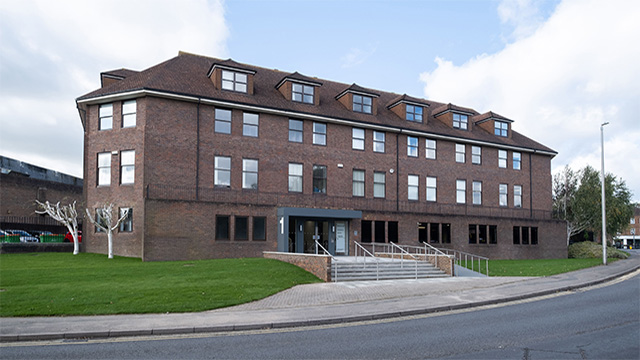A change of theme at MIPIM as those of Cannes do
EDITOR’S COMMENT The sun was definitely shining in Cannes and there was definitely a decent amount of upbeat chat around pivot, inflection and turning points, but the conference definitely felt a little different this year.
It appeared smaller – at least from a UK perspective. It was less busy inside the confines of the event barriers and even the usual haunts of New York New York and Bar Roma seemed to be more easily accessible. There were no swarms of people desperate to do deals with each other over an overpriced rosé or beer.
The UK’s big cities were still in attendance, but it was definitely more muted. And while investment minister Lord Dominic Johnson was there again, fulfilling his job as the “UK’s greatest salesman”, there wasn’t launch after launch after launch of major regeneration opportunities.
EDITOR’S COMMENT The sun was definitely shining in Cannes and there was definitely a decent amount of upbeat chat around pivot, inflection and turning points, but the conference definitely felt a little different this year.
It appeared smaller – at least from a UK perspective. It was less busy inside the confines of the event barriers and even the usual haunts of New York New York and Bar Roma seemed to be more easily accessible. There were no swarms of people desperate to do deals with each other over an overpriced rosé or beer.
The UK’s big cities were still in attendance, but it was definitely more muted. And while investment minister Lord Dominic Johnson was there again, fulfilling his job as the “UK’s greatest salesman”, there wasn’t launch after launch after launch of major regeneration opportunities.
Sciontec, the developer jointly owned by Liverpool John Moores University, the University of Liverpool, Liverpool City Council and Bruntwood SciTech, announced plans to create 350,000 sq ft of new laboratories and workspace in Liverpool’s Knowledge Quarter; Cardiff was pitching for more than £1bn of investment to transform the former Aberthaw power station into a green energy hub; and Opportunity London chief executive Jace Tyrrell was never seen without his “London: Bursting with opportunity” sign.
And there was, of course, the launch of the search for a development partner to bring forward the £725m resi-led redevelopment of Forth Yards in Newcastle, as revealed by EG. Homes England, which bought the site out of administration last month, has appointed Avison Young to find the partner.
But that was about it.
However, whether the grand launches and the big deal chat was there or not – even the usual gossip about the merger of two well-known agencies didn’t really take off – there were conversations happening. And dare I say it, they were refreshingly changed.
There was noticeably more conversation around ED&I. Particularly from UK participants. If you wanted a breakfast, lunch and dinner on the subject every day of the event, it wouldn’t be hard to fill your diary.
The make-up of attendees was more diverse. The volume of gilets/blazers being worn was still high and there was still many a blue suit wandering up and down the Croissette. But there was a different vibe, a more inclusive vibe, even if just in attire. Trainers outnumbered “proper” shoes and there were bigger pops of colour. People were definitely dressing for themselves and not for the stereotype. And while that might not sound like a big thing, it is. People are clearly feeling more comfortable. And if you’re comfortable, you’re more you.
Despite large swathes of the exhibition being handed over to Saudi Arabia for its $500bn (£390bn) Neom project and others, the conversation around ESG was even more prevalent this year. From the opening keynote speech by former Finland prime minister Sanna Marin, in which she gave a rallying call placing cities and the real estate companies that build them at the core of the fight against climate change, to the sheer volume of events being held under the sustainability banner, ESG was a big theme.
Key among that is that the conversation around ESG has changed. No longer are investors and developers asking for the whys and the financials, now they want to know the how. How do I practically implement what I need to implement?
The need is very, very clear now. If your asset isn’t sustainably sound – or can’t be made so – you won’t be able to finance it. Those knock-backs are happening. And they are happening more regularly.
So for those of you who didn’t make it to MIPIM this year, did you miss out? Well, you definitely missed out on some much-needed sunshine. And while I couldn’t hand-on-heart say you missed out on any big deals or any properly salacious gossip, you did miss out on some worthwhile conversations and that very subtle shift from why we need to do things to how we actually start.
And if you don’t know how, then you’ll definitely be left behind.











